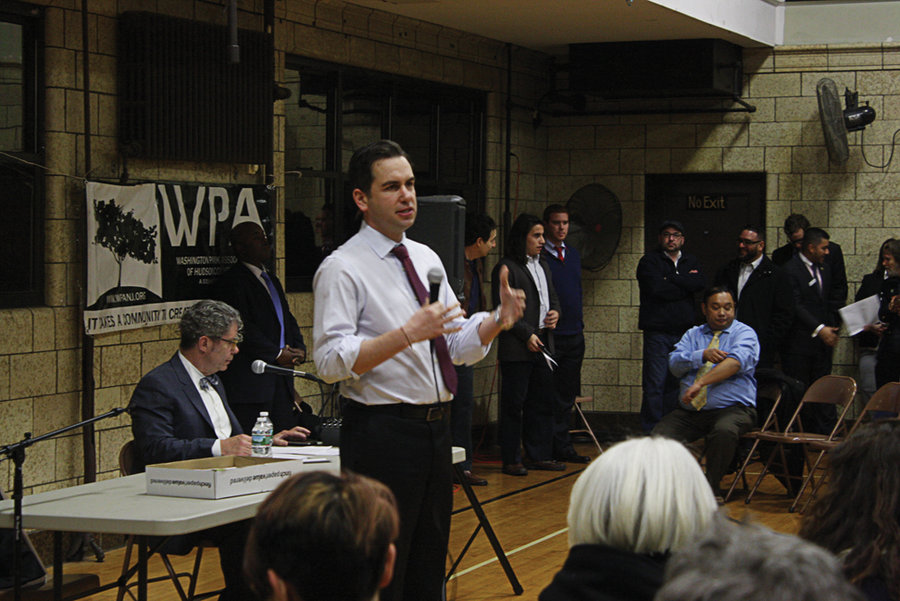The $550 million Jersey City municipal budget for the 2016 calendar year was introduced at the Feb. 23 meeting of the City Council. It indicates a spending increase of nearly $15 million over 2015, but property owners will experience no tax increase largely due to $95 million in new tax ratables, or new properties contributing taxes.
“Cities, like households, see expenses rise every year,” Mayor Steven Fulop said. “There are only two ways to cover those expenses: raise taxes or add to the ratable base.”
He said the growth in new ratables has off-set the increase in expenses, allowing the tax rate to remain stable for the third year in a row.
Local property owners pay $3.66 per thousand dollars of assessed value for the city tax rate, although the school and county budgets also contribute an amount that residents must pay overall.
Currently, the average residential assessment in Jersey City is $93,500.
“There are only two ways to cover those expenses: raise taxes or add to the ratable base.” – Mayor Steven Fulop
____________
He added, “Our goal is to be responsible stewards of taxpayer dollars, which means growing the tax base to not increase the burden on residents, while at the same time improving services and the quality of life.”
A government budget has two main parts, revenues and expenditures. Revenues can come from a variety of sources, including state and federal aid, grants for programs, and the tax levy from local property owners. Smaller amounts come from construction fees, service charges, and tax abatements. The more alternative revenues financing a budget, then less it must rely on taxes.
This year’s budget saw an increase in Municipal Utilities Authority revenue of $1 million and an increase in PILOT (tax abatement) payments of $6 million. Land sales brought the city about $8.7 million. Construction permit fees generated about $7.1 million. The city’s move to have the Police Department take over duties of the parking authority saved the city an additional $2.5 million annually.
The biggest expenses normally include employee salaries and benefits.
Growth is paying off
The biggest positive impact came from $95 million in additional ratables. This means that the taxes raised come from a larger tax base. The city has seen its tax base grow by $279 million over the last three years since Fulop took office.
Taxable property is about $6.1 billion. Of this, more than half is residential.
The increase in residential ratables is expected to continue, Fulop said, noting that the city has an additional 7,000 residential units currently under construction, with 19,000 more already approved.
Fulop said, “We’ve seen our credit rating increase and we’ve implemented sound fiscal planning that has allowed us to develop new programming and deliver better services for our residents, while also covering growing costs like healthcare and pension.”
The 2016 budget anticipates a $4 million rise in pension and $17 million in healthcare costs for employees, including police and fire. Health benefit costs rose over the last year from about $86 million to $91 million.
The 2016 budget will include the hiring of an additional 80 police officers, as well as the continued expansion of recreational programming, senior services, and park investments throughout the city. For the third year in a row, the Jersey City Summer Works program will place nearly 1,000 Jersey City students in summer jobs and internships.
“This budget also realizes the final merger of the Jersey City Incinerator Authority and Department of Public Works,” said Council President Rolando Lavarro Jr. ”There’s a lot to like in this budget, and a lot the council can work with the administration on going into 2016.”
The council is expected to hold a series of committee meetings to review and possibly cut the budget.
Public hearings on the budget are expected to begin later in March and at meetings in April, where it will be up for a final vote.
Al Sullivan may be reached at asullivan@hudsonreporter.com.
